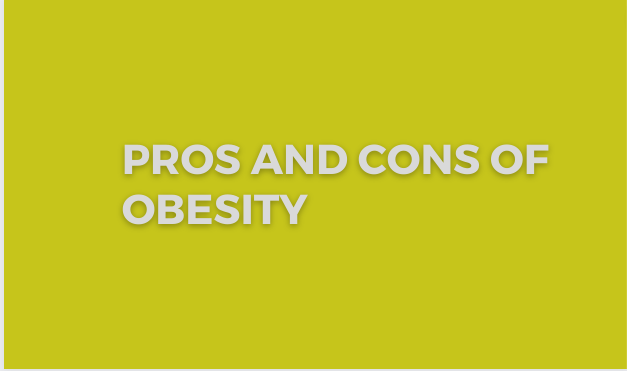Obesity is a chronic health condition characterized by excessive body fat accumulation, which can significantly impact physical, mental, and social well-being. The prevalence of obesity has been steadily rising globally, posing numerous challenges to individuals, communities, and healthcare systems. Here are the pros and cons of obesity:
Pros:
- None
Cons:
- Increased Risk of Chronic Diseases: Obesity is associated with a higher risk of developing chronic diseases such as type 2 diabetes, cardiovascular disease, and certain types of cancer.
- Reduced Life Expectancy: Obesity is linked to a shorter life expectancy due to the increased likelihood of developing life-threatening health complications.
- Negative Impact on Mental Health: Obesity is associated with higher depression, anxiety, and low self-esteem, affecting overall mental well-being.
- Physical Limitations: Obesity can lead to reduced mobility, physical discomfort, and limitations in performing daily activities.
- Increased Healthcare Costs: Treating obesity-related health issues significantly burdens healthcare systems, leading to higher healthcare costs.
- Social Stigma and Discrimination: Individuals with obesity often face social stigma, discrimination, and bias, negatively impacting their quality of life and self-image.
- Reduced Fertility: Obesity can lead to hormonal imbalances and reproductive complications, affecting fertility in both men and women.
- Impaired Sleep: Obesity is associated with sleep disorders such as sleep apnea, leading to poor quality sleep and daytime fatigue.
- Joint Problems: Excessive weight puts additional stress on the joints, increasing the risk of joint pain, osteoarthritis, and mobility issues.
- Increased Risk of Respiratory Issues: Obesity can contribute to respiratory problems such as asthma and reduced lung function.
- Impaired Cognitive Function: Obesity has been linked to cognitive decline, reduced memory, and impaired executive function.
- Negative Impact on Quality of Life: Obesity can limit participation in social activities, affect personal relationships, and diminish the overall quality of life.
- Higher Risk of Surgical Complications: Obese individuals undergoing surgery face higher risks of complications, anaesthesia-related issues, and slower recovery.
- Elevated Blood Pressure: Obesity is associated with hypertension, increasing the risk of heart disease, stroke, and kidney problems.
- Poor Nutritional Status: Obesity often coincides with poor nutrition, leading to deficiencies in essential nutrients and impaired overall health.
- Increased Risk of Infections: Obesity weakens the immune system, making individuals more susceptible to infections and delaying wound healing.
- Limited Clothing Options: Finding suitable and fashionable clothing options can be challenging for individuals with obesity, impacting self-expression and confidence.
- Negative Impact on Career and Employment: Obese individuals may face discrimination in the workplace, affecting job prospects and career advancement opportunities.
- Higher Risk of Surgical Intervention: Obesity increases the likelihood of needing surgical interventions for weight loss or to address obesity-related health issues.
- Interference with Daily Activities: Obesity can make simple tasks like walking, climbing stairs, or participating in physical activities difficult and exhausting.
Pros
- None
Cons
- Increased Risk of Chronic Diseases
- Reduced Life Expectancy
- Negative Impact on Mental Health
- Physical Limitations
- Increased Healthcare Costs
- Social Stigma and Discrimination
- Reduced Fertility
- Impaired Sleep
- Joint Problems
- Increased Risk of Respiratory Issues
- Impaired Cognitive Function
- Negative Impact on Quality of Life
- Higher Risk of Surgical Complications
- Elevated Blood Pressure
- Poor Nutritional Status
- Increased Risk of Infections
- Limited Clothing Options
- Negative Impact on Career and Employment
- Higher Risk of Surgical Intervention
- Interference with Daily Activities



